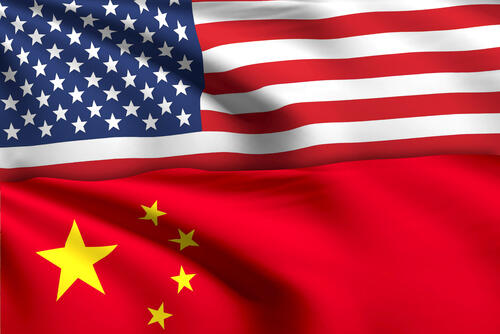It’s important to make this distinction for strategy reasons, which goes right to my previous point. There’s a growing sense now that “whatever China does is bad and the United States needs to counter everything China does,” but that's not quite true. While China's objectives in the SCS and ECS are detrimental to U.S. interests, some aspects of its objectives in the Indian Ocean and beyond are legitimate and do not necessarily threaten U.S. interests, although they are not without risks.
U.S. policy needs to consider these differences in the degree of threat because prioritization is crucial for strategy. If we are to prioritize our strategies, then we should prioritize countering China’s ambitions in its near seas and try to shape its objectives in the far seas, perhaps through more cooperative policies. Perceiving everything that China does as bad isn’t the right approach to competing with it.
In addition to your academic career, you have an extensive military portfolio: for over ten years, you have served in the United States Air Force Reserve. You have just been awarded the Meritorious Service Medal. Tell us more about this award, how your academic and military careers influence each other, and what it’s like to balance the two.
Mastro: I'm a special type of reservist called Individual Mobilization Augmentee (IMA), which means that I have a custom duty schedule and work with my active-duty supervisors to help meet mission requirements of whatever the priority is at the time. The award I just received, the Meritorious Service Medal, which is a recognition of commendable noncombatant service, is for my last role as a senior China analyst at the Pentagon. My main duties in that role were to prepare intel products and brief the senior leadership of Headquarters Air Force at the Pentagon.
I think that the mix of my two careers makes me a better military officer and a better scholar. My experiences in the military inspire a lot of my research projects, oftentimes regarding questions that I don't have good answers for. As an officer, I need the power of argumentation on my side if I am to make a difference. After I engage in the good academic practice of spending a year or more researching something in-depth, I can then go back and provide inputs into the Department of Defense. There is a synergy between the two careers in terms of topics.
Moreover, my experiences in the military have taught me leadership and teamwork skills that we don’t necessarily learn from being professors. There’s a vast difference in leadership and teamwork dynamics between the military and academia. When I’m on active duty, I'm there as Major Mastro to provide my expertise but also be a strong part of a team with a chain of command.
Of course, managing both civilian and military careers demands considerable planning and balancing. I schedule my deployments around my teaching schedule, but sometimes there are urgent assignments given current world events. For example, last semester, I was on duty one day a week while teaching full time. So that requires planning and flexibility on the part of my family, as well as support from the people who employ me.
How did you first become interested in China and East Asian security issues, and what made you pursue a military career?
Mastro: This is a fun topic to talk about at Stanford because it's all thanks to my experiences as an undergraduate student on The Farm. As a freshman, I began learning Chinese, and in the following years, being humanities- and arts-focused, I mainly studied ancient China and Chinese literature. When I returned to campus after a year of intensive study in China, I was looking for a research opportunity and heard about the CISAC Honors Program in International Security Studies. So it was only in my senior year that I took my first course in political science and was exposed to international security studies. I discovered a passion for this topic like nothing else I had studied before. I wanted to learn more and got my first job, at the Carnegie Endowment, researching security issues, and then decided to continue with graduate studies.
During my Ph.D. at Princeton, I met a General in the Air Force who told me I should join the military. At that point, I'd never met anyone in the military. I thought, “I’m not very tough; what could I possibly contribute?” But I took up on his suggestion to do an internship with the U.S. Indo-Pacific Command and realized that my Chinese language skills and knowledge about China could be useful. I wanted to serve and planned to do my duty for four years and be done, yet here we are, nearly 11 years later. It’s been a blessing to make a whole career out of this and it’s truly all thanks to many memorable experiences at Stanford and the CISAC Honors Program. I’m thrilled to be back and looking forward to teaching and mentoring students in the Honors program and the Ford Dorsey Master’s in International Policy program.
What are some of your current research projects and what do you plan to work on at APARC and Stanford at large?
Mastro: My main project is researching a book about what China wants – a framework for understanding how to assess Chinese intentions. This is a policy-relevant book that engages with international relations theory and literature, where understanding state intentions plays a key role. The framework I’m developing assesses information to answer what China’s intentions are in several areas and regarding several cases. There will be chapters on China’s regional ambitions, global ambitions, approach to international institutions, and intentions towards the economic and technological order. As part of this project, you may see me currently publishing works on the South China Sea or the Indian Ocean.
 Oriana Skylar Mastro is a Center Fellow at Stanford University’s Freeman Spogli Institute for International Studies (FSI). Within FSI, she works primarily in the Shorenstein Asia-Pacific Research Center (APARC) and the Center for International Security and Cooperation (CISAC) as well. She is also a fellow in Foreign and Defense Policy Studies at the American Enterprise Institute and an inaugural Wilson Center China Fellow.
Oriana Skylar Mastro is a Center Fellow at Stanford University’s Freeman Spogli Institute for International Studies (FSI). Within FSI, she works primarily in the Shorenstein Asia-Pacific Research Center (APARC) and the Center for International Security and Cooperation (CISAC) as well. She is also a fellow in Foreign and Defense Policy Studies at the American Enterprise Institute and an inaugural Wilson Center China Fellow.





![[left: image] Oriana Skylar Mastro, [right: text] Congratulations, Oriana Skylar Mastro, Recipient of the 2020 America in the World Consortium Prize for 'Best Policy Article' from Duke University, Johns Hopkins SAIS, and Texas University at Austin](https://fsi9-prod.s3.us-west-1.amazonaws.com/s3fs-public/styles/727x409/public/hero/awc_prize_hero1_0.png?h=c4d9845d&itok=6231eI8O)





